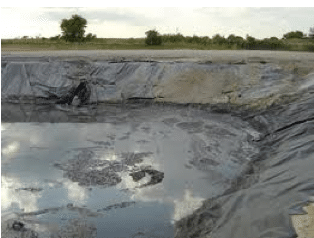 California's oil and gas industry regulators are about to write final state regulations on the controversial practice of fracking natural gas and oil wells in the state. Don't expect any backbone, however, from the state Department of Oil, Gas and Geothermal Regulation. So far, the draft proposals boil down to "trust the oil industry."
California's oil and gas industry regulators are about to write final state regulations on the controversial practice of fracking natural gas and oil wells in the state. Don't expect any backbone, however, from the state Department of Oil, Gas and Geothermal Regulation. So far, the draft proposals boil down to "trust the oil industry."
Chemically laced high-pressure water injections that release natural gas and oil from from shale and other rock formations are bringing boom times to the energy industry. This hydraulic fracturing, commonly called fracking, is raising strong objections in Pennsylvania, New York, Texas and other states that are seeing water, air and soil contamination. Lawsuits and studies allege the death of crops and animals from leaking ponds of discarded fracking solution that contaminate water and soil, the release of trapped methane into drinking water supplies and toxic air emissions.
Western states, including California, also fear the loss of billions of gallons of clean water to fracking. And the industry keeps secret many of the chemicals used in fracking, which lets drillers deny responsibility for water contamination because investigators cannot prove that fracking was the source.
Federal regulators are forbidden by a federal loophole from regulating fracking. So how are California oil and gas regulators responding? Unfortunately, with a proposed set of rules that suspiciously follow the model written by Exxon for the industry-funded American Legislative Exchange Council, or ALEC. California's proposals, by the state Division of Oil, Gas and Geothermal Regulation, would:
- Allow oil and gas companies to keep many fracking components secret, no matter how carcinogenic or toxic. While regulators might get confidential info, they can't disclose it. This puts first responders at risk, hampers emergency medical treatment and leaves landowners with no way to hold frackers responsible for specific chemical pollution of land and water.
- Trust frackers to comply on their own with well strength and safety system requirements, and detect and self-report their violations, spills and leaks, with no formal inspection regime;
- Leave enforcement to dozens of fragmented state and local bodies responsible for air, water and soil quality, oil spills, other toxic spills and food safety. With no one in charge, no agency will have an overall picture of violations and endangerment. No one will take comprehensive action. Similar fragmentation has helped cripple the state's oversight of other hazardous industrial toxins.
- Allow fracking at will–no permit, no effective landowner notification, no hearings. Frackers would merely have to notify DOGGR 10 days before commencing. The regulator would post an announcement on its website as late as three days befor fracking starts. There would be no hearings or appeal process for neighbors, and no specific notification to landowners. Even partial lists of chemicals in use would not be reported until 60 days after the fracking ends.
- Allow everything about newer wells, except location and operator, to be kept secret from the public for two full years. Neighbors and environmental regulators would not know the extent of industrial activity, whether the well might be fracked, or what chemicals are in use.
- The regulations do not require the testing of local air quality, water or soil immediately before fracking or oil well injection commences, so it will remain all but impossible to hold drillers accountable for pipe leakage and surface emissions afterward.
 See the regulator's own Q and A about the draft regulations to understand the lack of focus or teeth in the proposals.
See the regulator's own Q and A about the draft regulations to understand the lack of focus or teeth in the proposals.
Trusting the industry to police itself is insane, considering the damage recorded in other states where heavier industrial fracking has occurred. A recent study by Cornell University covering six states found livestock deaths, deformations and illnesses as well as human illness and neurological effects linked to fracking. Such incidents were attributed to carelessness, error and sometimes to a deliberate lack of costly safety systems.
Humans err. Corporations resist spending on money that will not return a profit–including spending on the best safety equipment. Major shale fields in central California are already being leased; the state's loophole-riddled regulations will only encourage carelessness and cost-cutting until it's too late to save our water supplies, agricultural land and the health of residents.












